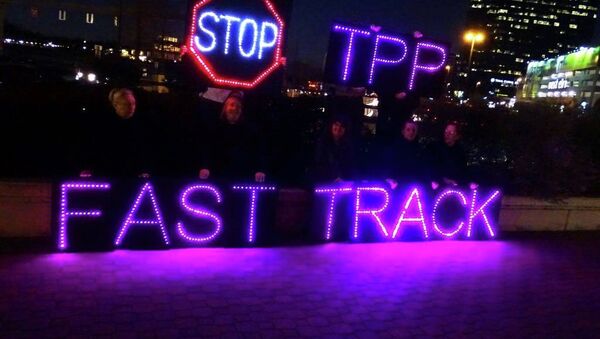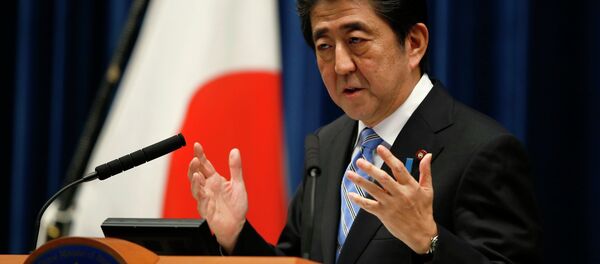WASHINGTON (Sputnik) — New WikiLeaks revelations that the National Security Agency (NSA) secretly spied on Japanese diplomats could delay or derail negotiations to bring Tokyo into the US-led Trans Pacific Partnership (TPP), experts told Sputnik.
“I think this leak issue comes at a very delicate time in relations between the United States and Japan,” Woodrow Wilson Center Senior Northeast Asia Associate Shihoko Goto told Sputnik on Friday.
The WikiLeaks documents list 35 NSA targets for telephone intercepts in Japan, including the switchboard and officials working at the Cabinet Office, plus senior financial and trade officials. The natural gas division of Mitsubishi and the petroleum division of Mitsui & Co. also appear to have bene under surveillance.
“The United States has been spying on its biggest ally in Asia,” Goto noted. “And it may have even shared sensitive intelligence from this surveillance with some of its other allies in the Asia Pacific region.”
Goto said the potential damage would be even greater if it was confirmed, as some reports have indicated, that the NSA shared the results of its secret surveillance activities on Japan with the Canada, Australia, the United Kingdom and New Zealand, its four partners in the “Five Eyes” electronic intelligence alliance.
“Apparently there have been reports that the United States could have shared some of the information it got illegally through this surveillance with other nations. That would really be backstabbing Japan,” she said.
Leaders in both Tokyo and Washington had to focus now on making sure that any rows over the WikiLeaks revelations did not endanger their negotiations to complete the TPP this year, the analyst added.
“Concluding the TPP is extraordinarily important, it has great political as well as economic implications,” the analyst added.
But the latest revelations about US behaviour sent a very counterproductive message, Goto warned.
“All 12 countries in the Trans Pacific Partnership are playing their cards very close to their chests and now the message they are receiving from the United States through these latest revelations is — We are looking at your cards,” she said. “Is that a solid basis for developing solid relations? I don’t think so.”
The revelations have created a situation that can be sued by Japanese opponents of the TPP.
“What is very interesting is that the United States is accusing China of doing exactly the same thing,” he told Sputnik. “We need to remind ourselves that there are no secrets anymore.”
Steinbach noted that the Obama administration had been strongly supporting Japanese Prime Minister Shinzo Abe in his efforts to “negate the whole concept of Article Nine of the post-war Constitution which says Japan will never wage an aggressive war.”
Yet, this growing intimacy between Washington and Tokyo was threatened by the latest WikiLeaks revelations, Steinbach noted.
Japan needed to learn that in the 21st century, major nation states needed to trust in themselves, not powerful allies, he added.



